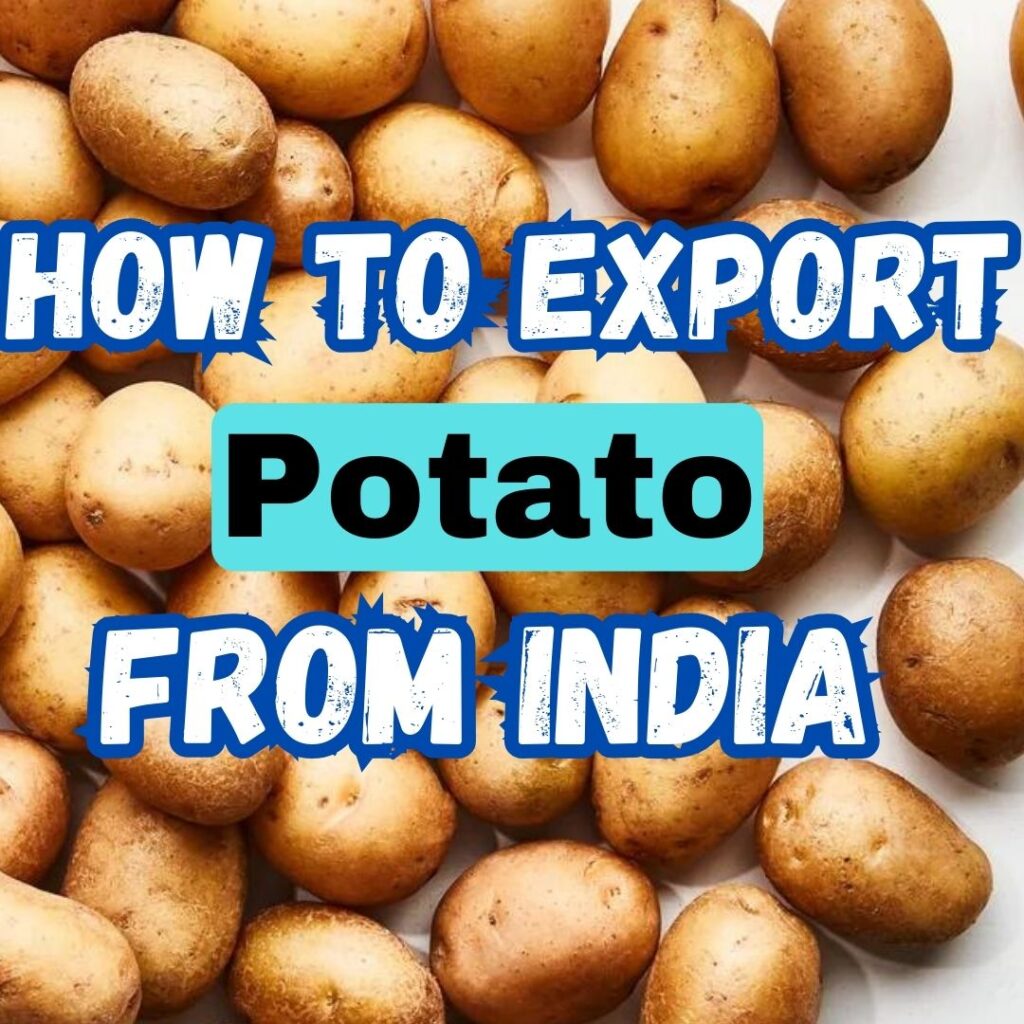Market Research:
Start by researching international markets to identify potential buyers and countries with demand for Indian potatoes.
Consider factors like market trends, preferences, import regulations, and competition.
Quality Standards and Regulations:
Ensure that the potatoes meet the quality standards and specifications required by the target market.
Familiarize yourself with the import regulations and phytosanitary requirements of the destination country.
Business Registration:
Register your business with the relevant authorities, such as the Directorate General of Foreign Trade (DGFT) and obtain an Importer-Exporter Code (IEC) if you don’t already have one.
Packaging and Labeling:
Potatoes should be cleaned, sorted, and packed in accordance with international packaging standards.
Label the packages with essential information like product details, weight, origin, and expiration date.
Obtain Necessary Certifications:
Obtain required certifications, such as a Phytosanitary Certificate, which verifies that the potatoes are free from pests and diseases.
The Agricultural and Processed Food Products Export Development Authority (APEDA) can assist with obtaining these certificates.
Customs Clearance:
Work with a customs broker or clearing agent to ensure that all customs documentation is in order.
Pay any applicable customs duties and taxes.
Shipping and Logistics:
Choose a suitable mode of transportation (air, sea, or land) based on the destination and volume of potatoes.
Hire a freight forwarder or logistics provider to handle the shipment.
Ensure proper temperature and humidity control during transit to maintain potato quality.
Export Documentation:
Prepare the necessary export documents, including the commercial invoice, bill of lading, certificate of origin, and any other documents required by the destination country.
Insurance:
Consider insuring your shipment to protect against potential losses during transit.
Customs Compliance in Destination Country:
Ensure compliance with the customs and import regulations of the destination country.
Work with local customs agents or importers to facilitate customs clearance.
Market Entry and Distribution:
Establish contacts with distributors, wholesalers, or retailers in the destination market.
Develop a marketing strategy to promote your potatoes in the foreign market.
Payment and Finance:
Decide on payment terms and methods with your international buyers.
Use a secure and internationally recognized method for financial transactions.
Quality Control and Feedback:
Continuously monitor the quality of your exported potatoes and gather feedback from customers to make improvements.
Compliance with Trade Agreements:
Be aware of any trade agreements or preferential tariffs that may apply to your potato exports, such as free trade agreements (FTAs) between India and the destination country.
Market Expansion:
As your export business grows, consider expanding to more markets and diversifying your product range.
It’s crucial to stay updated on the latest regulations and market trends, as they can change over time. Working with experienced professionals in the export industry can also be beneficial to navigate the complexities of international trade.
potato #potatoexport #howtoexportpotatofromindia #potatoexportfromindia #export #import #importexport #inportexportbusiness



